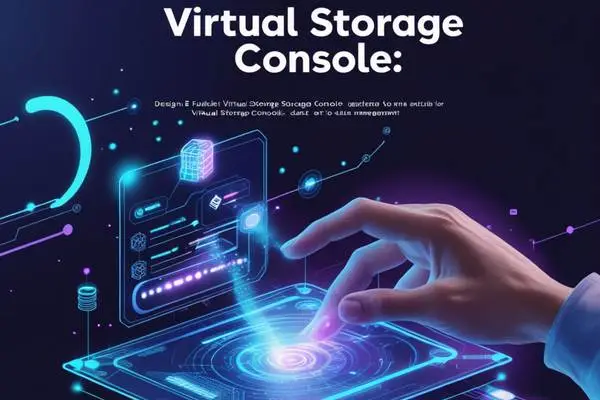In today’s digital landscape, where cyber threats, data breaches, and government surveillance are rampant, users are becoming increasingly cautious about where and how they store their files. Traditional cloud storage services like Google Drive and Dropbox offer convenience but often raise significant concerns regarding data privacy, centralized control, and potential security vulnerabilities.
This is where Anon Vault steps in. It is a revolutionary, privacy-first cloud storage solution that promises encryption, anonymous access, and a decentralized infrastructure. But does it truly deliver on these promises?
Table of Contents
ToggleWhat is Anon Vault?
Anon Vault is a secure cloud storage platform prioritizing user privacy and data protection. It claims to differentiate itself by offering:
- End-to-End Encryption Anon Vault
Only users possess the decryption keys, guaranteeing no one else can access their data. This ensures the data remains secure even if Anon Vault users are compromised.
- Zero-Knowledge Storage
Anon Vault cannot access stored data, providing an additional layer of privacy. This is crucial for users who want to ensure that their files are not subject to unauthorized access.
- Anonymous Signup
Users can create an account without providing personal details, allowing for a genuinely anonymous experience.
- Decentralized Infrastructure
This aims to reduce risks associated with single points of failure, making it harder for malicious actors to target a single server.
- Tamper-Proof File Integrity
Ensuring that files remain unchanged and verifiable is essential for maintaining sensitive documentation.
While these claims are promising, the real question is: how effectively are they implemented in practice?
Evaluating Anon Vault’s Security and Privacy Claims
Evaluating Anon Vault is challenging due to the limited publicly available technical information regarding its security framework. Let’s look at its core security features and compare them to industry standards.
1. Encryption Standards
This Vault claims to use AES-256-bit encryption, which banks and government agencies employ. This encryption method is widely regarded as one of the most secure available. However, the effectiveness of encryption depends on how it is implemented.
Key considerations include:
- Client-Side vs. Server-Side Encryption:
Encryption is performed before files are uploaded, meaning that files are encrypted on the user’s device before being sent. Ensuring that only the user can decrypt them. In contrast, server-side encryption means that files are encrypted after being uploaded, which could expose them to potential vulnerabilities.
- Storage of Encryption Keys:
Are these keys stored locally on the user’s deviser? Anon Vault’s keys are stored on the server, and unauthorized parties could access them.
It is a highly secure solution if encryption is truly client-side, even if it cannot access user data. However, if encryption occurs server-side, there is a risk that decryption keys could be accessible to the provider.
2. Decentralized Storage: How True is the Claim?
Anon Vault emphasizes decentralization as a key differentiator, but the extent of its implementation remains unclear. A fully decentralized cloud storage system means data is not stored on a single server or controlled by one entity.
Decentralized storage can be categorized into two main types:
- Blockchain-Based Storage
This method uses blockchain technology to distribute data across a network of nodes. Each piece of data is encrypted and stored in multiple locations, making it nearly impossible for any single entity to control or access all the data. Examples include Filecoin and Storj.
- Peer-to-Peer (P2P) Storage
In P2P systems, users share their storage space with others, creating a network where users distribute files. This method can enhance privacy and security but may suffer performance issues if nodes go offline. Examples include IPFS (InterPlanetary File System) and Sia.
If Anon Vault utilizes distributed storage across independent nodes, it significantly reduces risks such as:
- Government-Imposed Shutdowns: Decentralization makes it harder for authorities to shut down the service entirely.
- Centralized Data Breaches: By spreading data across multiple nodes, the impact of a single breach is minimized.
- Server Failures: Other nodes can still access data if one node goes down.
However, if it still relies on traditional cloud infrastructure, its decentralization claims may be only partially fulfilled.
Who Benefits Most from Anon Vault?
While any privacy-conscious user may find it appealing, it is particularly suited for:
- Journalists and activists
They often need to securely store and share sensitive documents while protecting against government surveillance and censorship. Anon Vault’s anonysignupign-up and zero-knowledge storage make it ideal for those in high-risk environments.
2. Businesses Handling Confidential Data
The legal, healthcare, and finance sectors require stringent data compliance and security. It ensures client confidentiality without exposing client information to third parties, making it suitable for businesses that handle sensitive information.
3. Crypto & Digital Asset Holders
With the rise of cryptocurrencies, secure storage for private keys, wallet seed phrases, and digital assets is crucial. Anon Vault is an offline backup that prevents exchange hacks, providing crypto investors peace of mind.
4. Privacy-Conscious Individuals
In a world where big tech companies and advertisers often exploit personal data, Anon Vault offers a way to protect personal information from cybercriminals.
5. Whistleblowers
Those who need to share sensitive information without fear of exposure can benefit from Anon Vault’s strong features. The platform allows for secure communication and document sharing, which is vital for whistleblowers.
Anon Vault vs. Traditional Cloud Storage
When comparing Anon Vault to traditional cloud storage providers, one must consider each offer’s security and features. Here’s a detailed comparison
| Feature | Anon Vault | Google Drive | Dropbox | Proton Drive |
|---|---|---|---|---|
| End-to-End Encryption | Yes | No | No | Yes |
| Zero-Knowledge Storage | Yes | No | No | Yes |
| AnonSignupSignup | Yes | No | No | No |
| Decentralized Network | Claimed (Unverified) | No | No | No |
| File Sharing with Expiry Links | Yes | Yes | Yes | Yes |
| Data Monetization (Sells User Data?) | No | Yes | Yes | No |
| Pricing | TBD | Free/Paid | Free/Paid | Free/Paid |
| Storage Limits | TBD | 15 GB (Free) | 2 GB (Free) | 500 MB (Free) |
| Pros | Strong privacy features | User-friendly | Integrates with other apps | Strong privacy focus |
| Cons | Limited user reviews | Data monetization | Limited free storage | Newer service |
Detailed Feature Analysis
- End-to-End Encryption
Anon Vault’s commitment to E2EE Vault means that users can rest assured that their files are secure from unauthorized access. In contrast, Google Drive and Dropbox do not offer this level of security, making them less suitable for sensitive data.
- Zero-Knowledge Storage
This feature is a game-changer for privacy. Anon Vault’s zero-knowledge policy is that even the service provider cannot access user data. This starkly contrasts traditional providers, which often have access to user files.
- Anonymous Signup
Creating an account without providing personal information is a significant advantage for users who value their privacy. Traditional services typically require personal details, which can deter privacy-conscious individuals.
- Decentralized Network
While Anon Vault claims to offer decentralization, the lack of verification raises questions. Traditional providers rely on centralized servers, which can be vulnerable to attacks and government intervention.
- File Sharing with Expiry Links
Anon Vault allows users to share files securely with expiry links, similar to Google Drive and Dropbox. This feature is essential for users who need to share sensitive information temporarily.
- Data Monetization
Anon Vault’s commitment to not sVault’s user data is a significant differentiator. Many traditional providers monetize user data, raising ethical privacy concerns.
- Verdict
Anon Vault offers stronger privacy controls than mainstream providers, but Proton Drive remains a strong competitor with a proven security record.
Pricing & Subscription Plans
Transparency in pricing is crucial for building trust. While Anon Vault focuses on privacy, users need clarity on:
- Free Plan Availability
Does Anon Vault offer a free plan? If so, what are its limitations? Many users appreciate having a free tier to test the service before committing financially.
- Premium Plan Costs
What are the costs for premium plans, and are there different storage tiers? Clear pricing information helps users make informed decisions.
- Lifetime Access
Is lifetime access available, or is it subscription-based only? Understanding the payment structure is essential for budgeting.
- Further Clarification Needed
Providing precise pricing details will enhance user-friendliness and transparency. Users should be able to easily find information about costs and features associated with each plan.
User Reviews & Testimonials: What Are Users Saying?
The lack of verified user feedback is a significant concern when assessing Anon Vault. Many cloud storage providers showcase authentic testimonials with specific details, yet Anon Vault’s website does not provide customer reviews.
What users need:
- Real-World Testimonials:
Users want to hear from others who have used Anon Vault. Specific use cases and experiences can help potential customers gauge the service’s effectiveness.
- Indepeservice’ sert Reviews:
Reviews from cybersecurity professionals can lend credibility to Anon Vault’s claims. Users often see Vault’s opinions before making decisions about security products.
- Community Discussions:
Engaging with community discussions on platforms like Reddit or specialized forums can provide valuable insights into user experiences and concerns.
Where to Look for Reviews:
- Reddit: Subreddits like r/privacy, r/cloudstorage, and r/cybersecurity often discuss various cloud storage solutions.
- Tech Forums: Websites like Stack Exchange and specialized tech forums can provide user insights and experiences.
- Social Media: Platforms like Twitter and Facebook may have user discussions and reviews about Anon Vault.
Even if user reviews are limited, it’s important to acknowledge this fact. Anon should actively solicit reviews and testimonials to build a more robust reputation.
Final Thoughts: Should You Trust Anon Vault?
Anon Vault presents itself as a strong alternative for privacy-conscious users, but more transparency is needed.
Strengths:
- Strong Encryption and Anonymous Access:
These features are essential for users prioritizing privacy and security.
- Focus on User Privacy and Security:
Anon Vault’s commitment to protecting user data is Vault’sable.
- Potential for Decentralized Storage:
This could significantly enhance security if fully realized.
Weaknesses:
- No Independent Security Audits (Yet):
The platform lacks third-party verification reports about its security claims.
- Limited Pricing and User Reviews:
More pricing and user feedback transparency are needed to build trust.
To strengthen its credibility, Anon Vault should:
- Publish Detailed Technical Documentation:
Clear information about encryption and storage methods will help users better understand the service.
- Conduct Third-Party Security Audits:
Independent audits can verify Anon Vault’s claims and enhance user trust.
- Improve Pricing Vault’s currency:
Clear pricing information and showcasing user testimonials will make the platform more user-friendly.
Call to Action
If Anon Vault addresses these transparency concerns and provides evidence to support its claims, it could become a strong contender in the privacy-focused cloud storage market. We recommend that users carefully evaluate their needs and consider the information presented before deciding.
FAQs:
Q1: How is Anon Vault different from Proton Drive or Mega?
Anon Vault prioritizes anonymous access and decentralization, while Proton Drive focuses on Switzerland-based privacy laws, and Mega offers a more extended history in cloud security.
Q2: Can Anon Vault be hacked?
No system is 100% hack-proof, but client-side encryption ensures that files remain protected even if Anon Vault’s infrastructure is compromised.
Q3: Does Anon Vault colleVault’sdata?
Many cloud providers log timestamps, IP addresses, and file sizes. It should clarify whether it retains any metadata that could be linked to users.
Q4: What happens if I lose my encryption key?
Since Anon Vault uses zero-knowledge encryption, lost keys mean lost access to your data. It is essential to back up your encryption key securely.
Q5: Is Anon Vault open-source?
Transparency is a core principle in security. Open-source platforms allow independent audits to verify security claims. If It is closed-source, it may need to provide third-party audits to build trust.
Q6: What types of files can I store on Anon Vault?
It supports many file types, including documents, images, videos, etc. Users can securely store anything they need.










